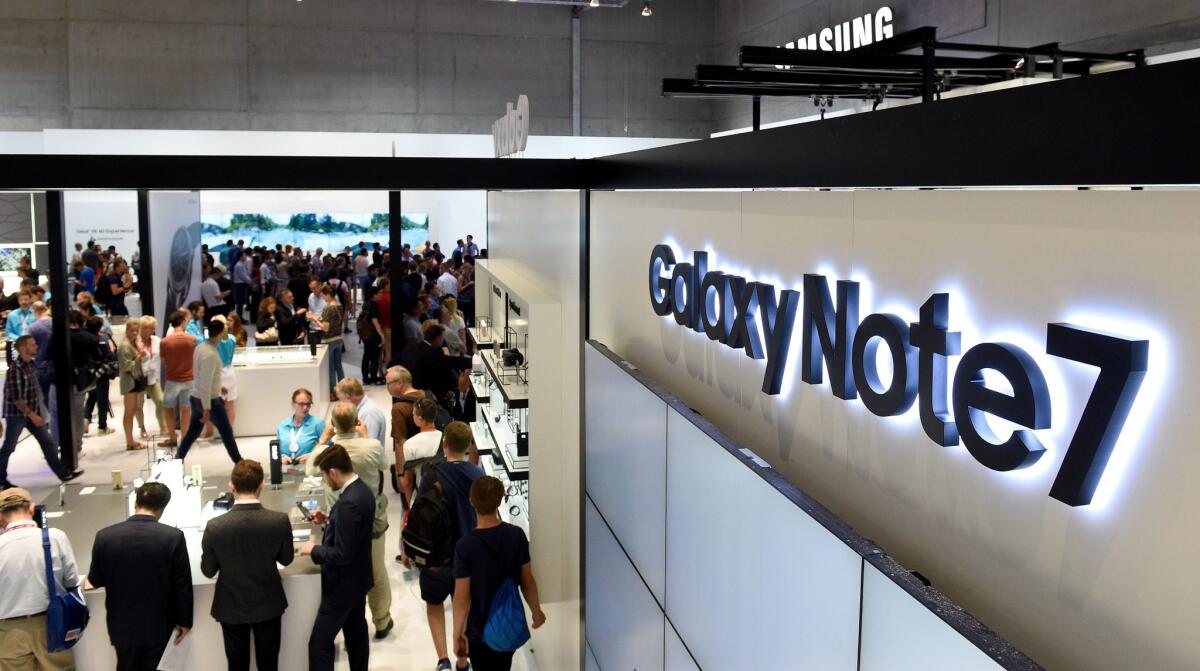Stop using Samsung Galaxy Note 7 phones and turn them off, safety officials warn

- Share via
If you have a Samsung Galaxy Note 7 smartphone, stop using it, federal safety regulators say.
Samsung Electronics Co. halted sales of the phones last week after lithium-ion batteries in some of them exploded or caught fire, and on Friday, the U.S Consumer Product Safety Commission urged owners of the phones to turn them off and leave them off.
The fires “have occurred while charging and during normal use,” the agency said, adding that it was working with Samsung to announce a recall “as soon as possible.”
The phones came out only three weeks ago.
Earlier this week, the Federal Aviation Administration said it “strongly advises” airline passengers not to use or charge the phones and not to stow any in checked baggage.
It is very unusual for the FAA to warn passengers about a specific branded product.
Shares of Samsung Electronics Co. tumbled 4% on Friday, the stock’s biggest decline since January.
The Note series is one of the most expensive lineups released by Samsung, and the devices usually inherit designs and features of the Galaxy S phones that debut in the spring. Samsung also added an iris scanner to the Note 7, which detects patterns in users’ eyes to unlock the phone.
Before the issue of battery explosions emerged, supplies of the smartphone were not keeping up with higher-than-expected demand.
The Note 7 isn’t the only gadget to catch fire because of lithium-battery problems, which have afflicted everything from laptops to Tesla cars to Boeing’s 787 jetliner.
Rechargeable lithium batteries are more susceptible to overheating than other types of batteries if they are exposed to high temperatures, are damaged or have manufacturing flaws. Once the overheating starts, it can lead to “thermal runaway” in which temperatures continue escalating to very high levels. Water can extinguish the flames, but it doesn’t always halt the thermal runaway — flames often reappear after being quenched.
Lithium batteries are ubiquitous in consumer electronic devices. Manufacturers like them because they weigh less and pack considerably more energy into the same space than other types of batteries.
Earlier this year, the International Civil Aviation Organization, a United Nations agency that sets global aviation safety standards, banned bulk shipments of rechargeable lithium-ion batteries as cargo on passenger planes until better packaging can be developed to prevent a fire from spreading and potentially destroying the plane.
ALSO
What to do if you bought Samsung’s exploding Galaxy Note 7
Think you’ve been ripped off by Wells Fargo? Here’s what to do
Samsung CEO says purchase of Dacor opens door into ‘premium’ appliances
UPDATES:
5:45 p.m.: This article was updated with additional background information.
This article was originally published at 1:55 p.m.



